Vitamin C, also called ascorbic acid, is an essential vitamin with many health benefits. Remember when your parents would have you drink a glass of orange juice to start the day? There are many reasons why that was a good idea!
For example, a healthy intake of Vitamin C is critical for strengthening your immune system and keeping your blood pressure in check. Despite the known benefits of Vitamin C, according to a study by Oregon State University, 43% of adults have a Vitamin C deficiency.
This deficiency can also lead to hair loss or hair thinning, which is why Vitamin C nutrients can be a good way to counteract hair loss.
Many people are surprised that when applied topically, Vitamin C nutrients are effective in promoting healthy hair growth. In this article, the Divi team shares some of the benefits of Vitamin C and how, as part of Divi's Scalp Serum, it can help you combat hair loss symptoms.
Potential Causes of Hair Loss
Before discussing Vitamin C’s benefits for treating hair loss, let’s understand which factors contribute to hair loss. There are a few different causes, and Vitamin C added topically to the scalp can address them, as you’ll read about later in this article.
Aging
Clinical evidence suggests that, as you get older, your body's collagen production decreases. Collagen, a protein, provides structural support to your body's cells and promotes hair growth in several ways. For example, your body uses the amino acids from collagen to develop hair proteins, and collagen can strengthen the scalp's skin containing the hair roots.
The aging process also affects iron metabolism. Without sufficient iron, your body struggles to produce hemoglobin, a protein that helps your red blood cells carry oxygen. Oxygen, which is transported and delivered throughout your body via your blood, is needed throughout your body for proper functioning, including in the cells that promote hair growth. You might also struggle with hair loss if you have an iron deficiency due to aging.
Lifestyle Factors
Your lifestyle has a significant impact on your hair's health. For example, when you eat carbohydrates or sugar, your body undergoes a spike in insulin and androgen hormone levels. When these hormones bind to your hair follicles, your hair might fall out.
Other lifestyle factors, such as a sedentary lifestyle and insufficient exercise, can contribute to oxidative stress, an imbalance between the build-up of oxygen-reactive species (free radicals) in your cells and your body's ability to detoxify these species.
Chronic stress and anxiety can also contribute to oxidative stress, a common cause of hair loss and graying. For example, people who work in stressful environments often find that their hair thins, grays, or falls out.
Pregnancy
Pregnant women often experience hair thinning or loss during pregnancy. If you are pregnant, your iron stores become a hemoglobin source for your growing fetus. However, your own blood volume and iron requirement increase as well, which means you become more susceptible to an iron deficiency.
An iron deficiency can cause anemia, which means low levels of oxygen-rich red blood cells. Other causes of hair loss in pregnancy include hyperthyroidism or autoimmune conditions, such as rheumatoid arthritis or alopecia areata.
Doctors and midwives often recommend pregnant women who are anemic to adjust their diet or receive an iron supplement. These measures can also reverse hair loss.
Unbalanced Diet
Like aging and pregnancy, nutritional intake can affect iron levels in the body, which, in turn, causes hair loss.
Red meat, poultry, and seafood are the primary sources of iron in your diet. However, if you are a vegetarian or vegan, you need to increase your intake of plant-based products rich in iron. These foods include beans, peas, dried fruits, and some grains. Leafy dark green vegetables, such as spinach, are also healthy sources of iron. You also need to improve your body's absorption of iron from these foods, which is where Vitamin C comes in.
Intestinal Disorders
If you suffer from a gastrointestinal disorder, you have a relatively high risk of iron deficiency and hair loss. Even if you follow a healthy and balanced diet, these conditions can result in an iron deficiency due to malabsorption. Gastrointestinal disorders that can cause iron malabsorption include Crohn's disease, ulcerative colitis, and Celiac disease.
Other intestinal factors that affect your body's ability to absorb iron include H. pylori, autoimmune gastritis, and gastric bypass surgery. In these cases, improving your body's ability to absorb iron can help with hair growth.
Exposure to Sunlight, Pollution, Radiation, or Chemicals
Exposure to pollutants, the sun's UV rays, pesticides, and other chemicals can cause free radicals to form in the body. Free radicals are reactive and unstable molecules that can damage body cell membranes, lipids, DNA, and proteins. The body produces antioxidants to neutralize these free radicals.
However, in the case of excessive exposure to radiation, chemicals, or pollution, the body might experience an imbalance between free radicals and antioxidants. The resulting oxidative stress increases your risk of inflammation and is a primary factor in various dermatological scalp conditions affecting healthy hair growth. These conditions include seborrheic dermatitis, dandruff, atopic dermatitis, and psoriasis.
Clinical evidence suggests that increasing levels of free radicals in the body inhibit cells' ability to renew themselves, regenerate, and reproduce. In other words, oxidative stress reduces the scalp's ability to provide a supportive environment for hair growth, which leads to androgenic alopecia.
If you spend long amounts of time in direct sunlight, or if you work with chemicals, your hair loss might be due to oxidative stress.
Excessive Alcohol Consumption and Smoking
Heavy drinking can contribute to hair loss. Heavy drinking for men is considered more than 15 alcoholic drinks per week. For women, heavy drinking is the consumption of eight or more alcoholic drinks per week.
Excessive drinking can increase your risk of high blood pressure, liver disease, gout, and digestive problems. Like alcohol consumption, cigarette smoking also causes oxidative stress. The direct damage of free radical agents and your body's inflammatory response to smoking are among the various mechanisms smoking causes oxidative stress.
The oxidative stress from smoking and drinking can affect your scalp health, causing hair thinning and hair loss.
What Is Vitamin C, and How Can It Address These Hair Loss Factors?
Vitamin C, or ascorbic acid, is a water-soluble acid and antioxidant. The vitamin is naturally present in some foods, such as citrus fruits, bell peppers, strawberries, tomatoes, broccoli, and cabbage. Many people also buy it as a dietary supplement.
The human body cannot synthesize ascorbic acid on its own, which means it is an essential dietary component. You need sufficient Vitamin C intake for various physiological functions, including the biosynthesis of L-carnitine, a chemical that helps your body convert fat into energy.
Vitamin C is also a physiological antioxidant that can regenerate other antioxidants, such as alpha-tocopherol, a type of vitamin E. A long-lasting Vitamin C deficiency can result in scurvy, a potentially fatal condition that was common among sailors before the discovery of ascorbic acid in 1928.
Today, in developed countries, scurvy and other conditions related to a lack of Vitamin C are not common. However, some people are at risk of Vitamin C deficiency due to smoking, intestinal malabsorption, and limited nutritional intake. In some cases, those with Vitamin C deficiency also experience hair loss.
How Does Vitamin C Treat Hair Loss?
Whatever the underlying cause of your hair loss, Vitamin C could be a great addition to your hair care routine. Below, we discuss how the topical application of a product containing Vitamin C, such as Divi's Scalp Serum, can combat the symptoms of androgenic alopecia and other health conditions causing hair loss.
Supports Collagen Production
Your body needs Vitamin C for the biosynthesis of collagen, which can help restore hair growth as you age. Ascorbic acid is the cofactor for the two enzymes the body needs for collagen production:
- Prolyl hydroxylase, which stabilizes the collagen molecule
- Lysyl hydroxylase, which allows for the cross-linking of collagen
Collagen consists of three amino acids: hydroxyproline, glycine, and proline. The body uses these amino acids to synthesize keratin, the protein that promotes healthy hair growth.
If your hair loss is due to aging and a reduction in collagen levels, ascorbic acid is the ideal treatment to stimulate hair growth. So finding a product like Divi’s Scalp Serum with Vitamin C as an ingredient can help.
Promotes Iron Absorption
An iron deficiency resulting from aging, pregnancy, an unbalanced diet, or intestinal disorders can lead to various types of hair loss. These conditions include androgenetic alopecia, telogen effluvium, and alopecia areata.
Vitamin C is not a source of iron, but it promotes the absorption of the available food iron in your body. For example, if your hair loss is due to an intestinal disorder that causes the malabsorption of iron, Vitamin C can help to counteract the effect of the disease. Similarly, if you are a vegan and don't eat red meat, Vitamin C can help you absorb the iron from beans, peas, and other food-based sources.
Protects Against Free Radicals and Oxidative Stress
Vitamin C is a free radical agent scavenger that can help reduce oxidative stress resulting from environmental and lifestyle factors. As an antioxidant agent, Vitamin C donates electrons to reactive oxygen species (ROS), neutralizing these free radicals and reducing their reactivity. Vitamin C is also a pro-oxidant, which means it can reduce the metal ions that produce free radicals.
Vitamin C can be helpful if your hair loss is caused by smoking, drinking, exposure to chemicals, radiation, or chronic stress.
Stimulates Dermal Papilla Cell Growth
Vitamin C can potentially support hair growth directly through dermal papilla cell growth. The dermal papilla cells at your hair follicles' base play an essential role in hair formation and the development of the hair growth cycle. According to clinical evidence, Vitamin C stimulates the growth of these dermal papilla cells.
As you age, these cells decrease, causing a follicular decline. Using Vitamin C can reverse this effect and restore your hair growth.
Protects Against Hair Dye
Vitamin C can help alleviate oxidative stress from exposure to chemicals, which can improve hair growth. Ascorbic acid can also treat hyperpigmentation that might result from hair dye use. Vitamin C can help promote the best scalp environment for your hair to flourish.
How To Use Vitamin C for Hair Growth
Vitamin C is often considered a dietary supplement. Still, direct application of Vitamin C to your hair strands and scalp can also offer various benefits for hair growth.
Perhaps your nutritional intake of this water-soluble vitamin is sufficient, but you still notice hair loss resulting from Vitamin C inadequacy. The topical application of Vitamin C might be an ideal alternative to taking oral ascorbic acid supplements.
Determining the correct topical Vitamin C volume to apply can be challenging. Instead, use a product like Divi's Scalp Serum to ensure that you apply the safest and most effective concentration to your scalp and hair.
Does Topical Vitamin C for Treating Hair Loss Have Any Side Effects?
Divi's Scalp Serum is dermatologist-tested for topical application and safe for use.
As with any product, make sure to follow the directions for application. When using Divi's Scalp Serum, you should:
- Apply ¾ of a dropper daily to wet or dry hair, morning or night.
- Massage the Serum into your scalp and let it soak in.
- You can also use Divi’s Scalp Serum to treat specific problem areas. However, using more than ¾ dropper a day will shorten the number of “servings” in your bottle and it will not last the full 30 days.
Some potentially adverse effects of topical Vitamin C can include itching, skin irritation, redness, and a tingling sensation. However, the risk of these side effects is low, especially if you follow the product usage recommendations.
We always recommend patch-testing any new product, and if you have an adverse reaction, we advise that you discontinue use and consult your doctor.
Use Divi’s Scalp Serum for Optimal Hair Health
If you want to take advantage of the benefits of Vitamin C for treating hair loss, consider using Divi’s Scalp Serum with its powerful formula containing amino acids and peptides. In Divi's Scalp Serum, Vitamin C works alongside other science-backed ingredients, including glycine, green tea leaf extract, and menthol, to nourish your hair and scalp and help make the best environment for your hair to thrive.
Divi’s Scalp Serum smells great and is easy to incorporate into your hair care routine for a fast, easy way to achieve happier and healthier hair.






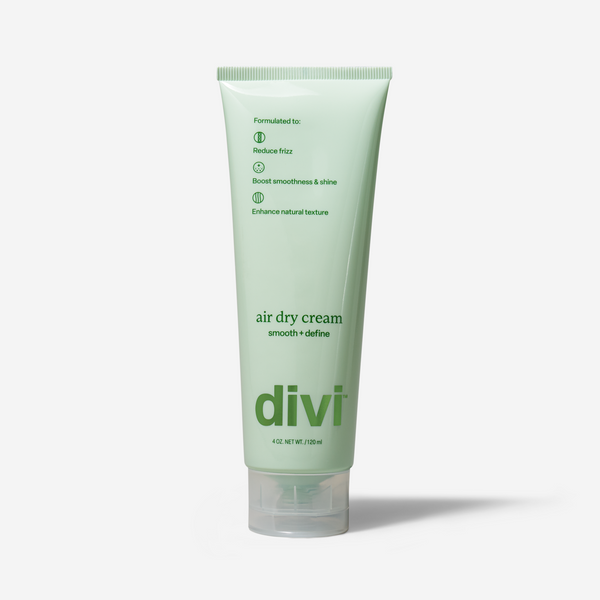
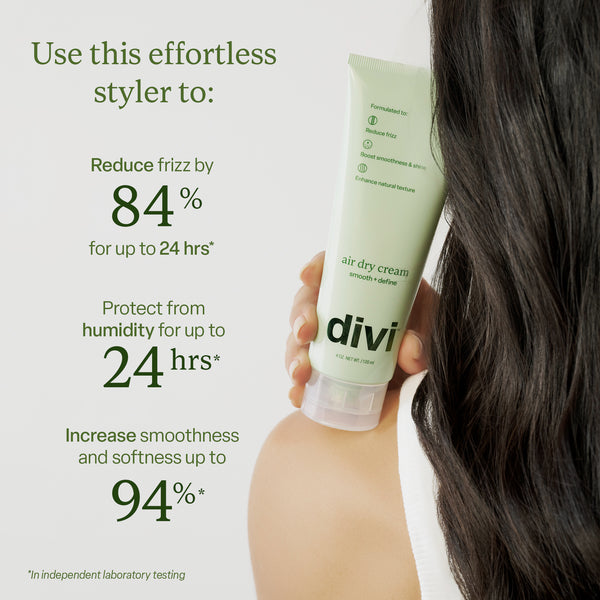

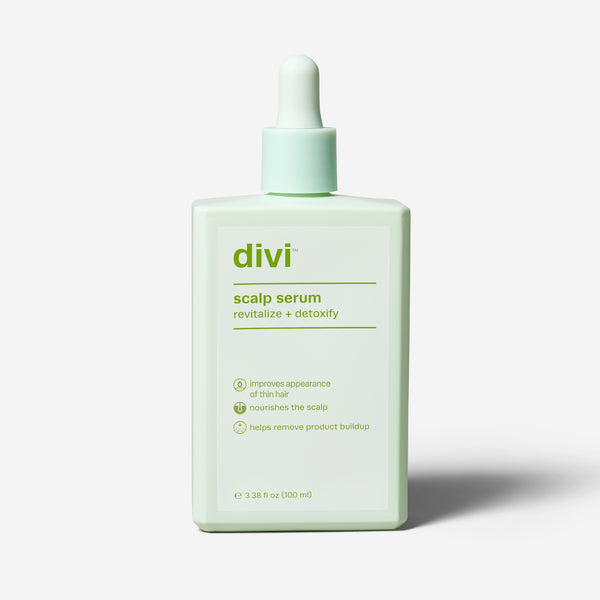

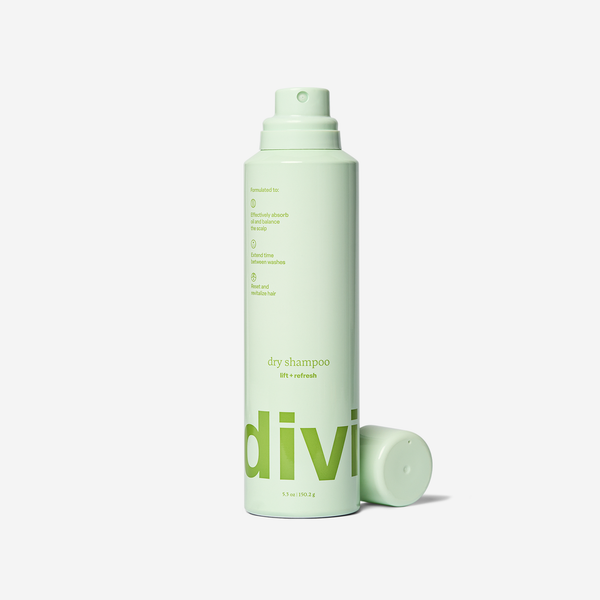

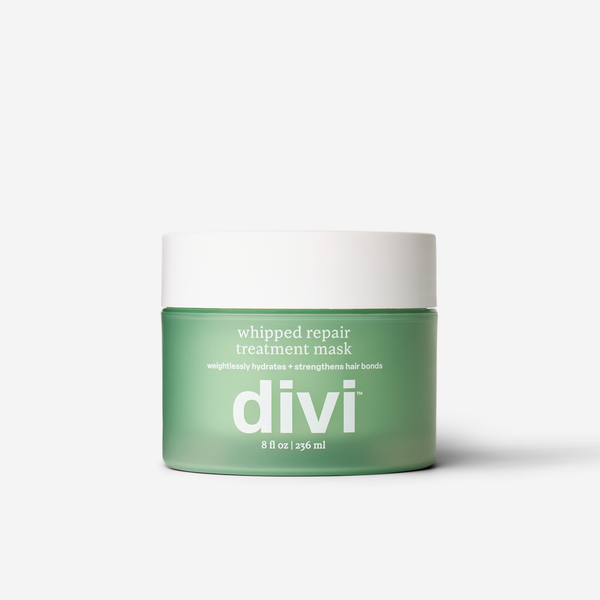
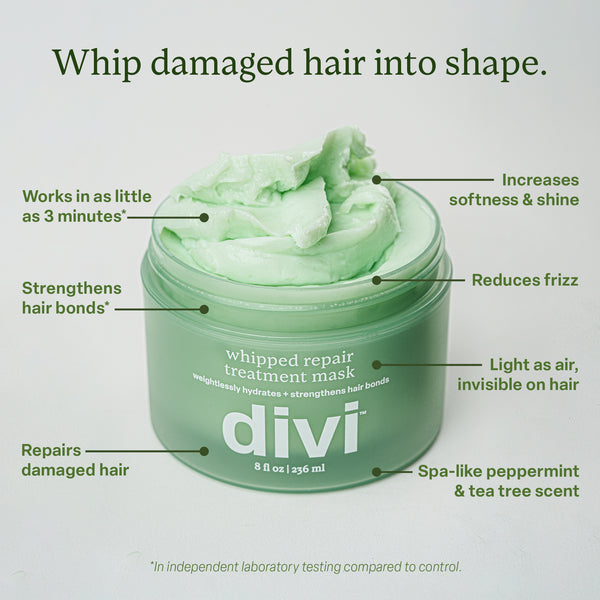
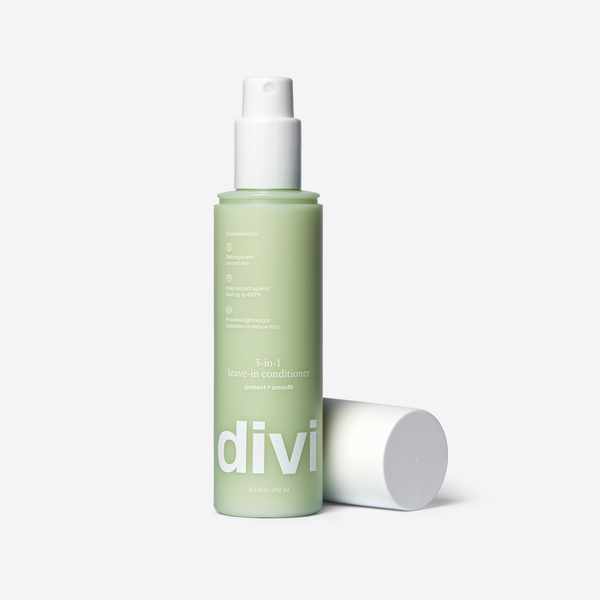

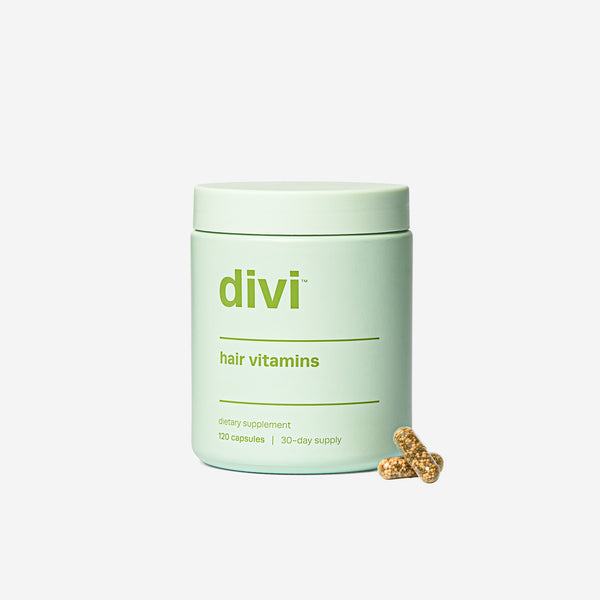
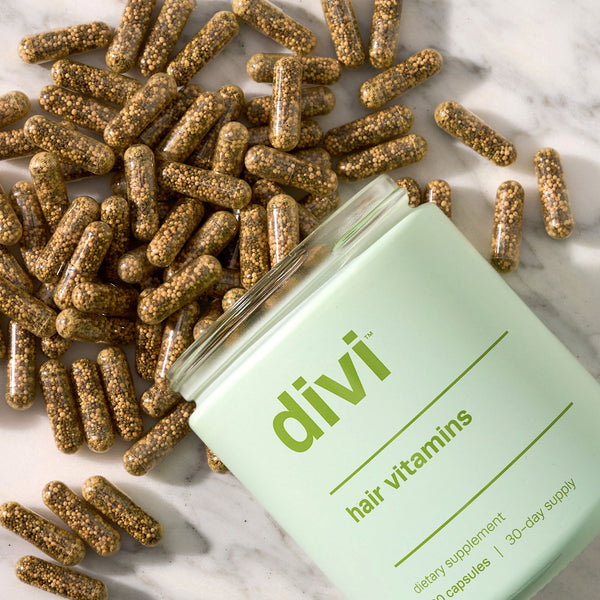
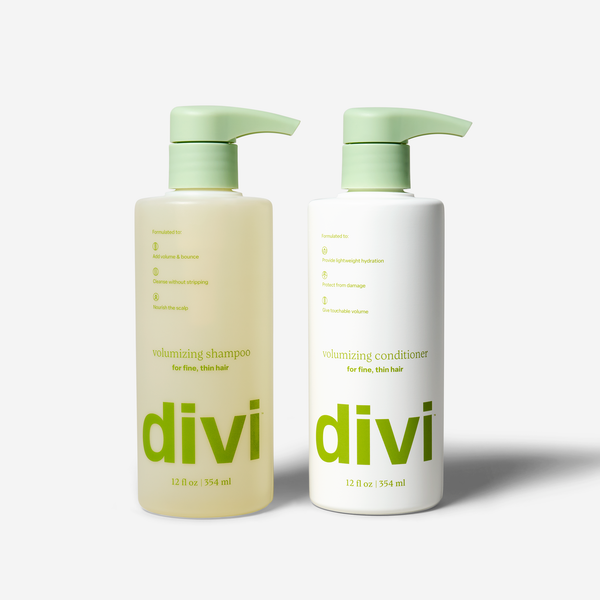





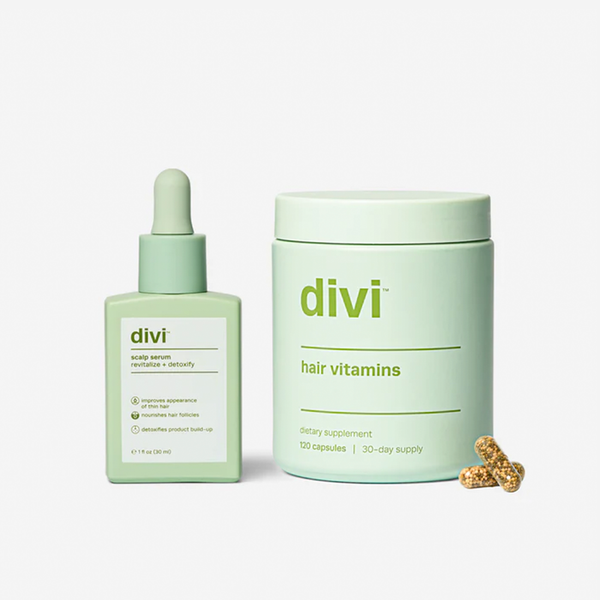
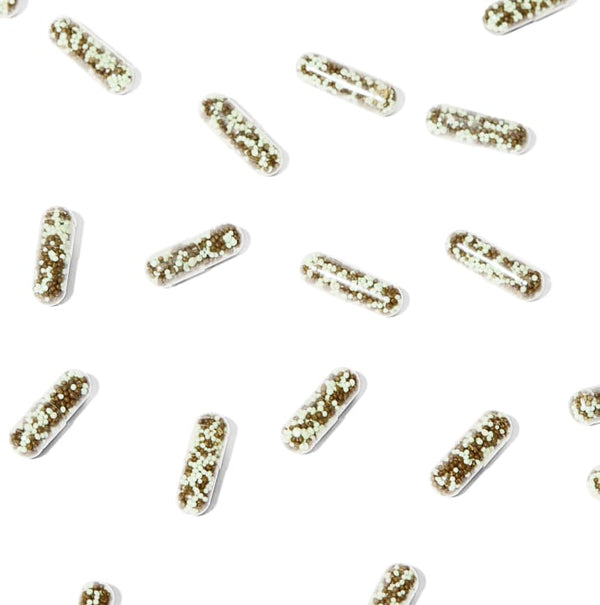
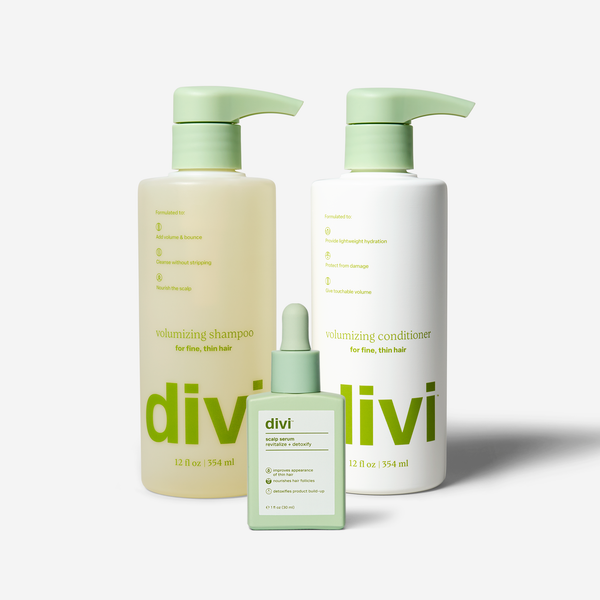
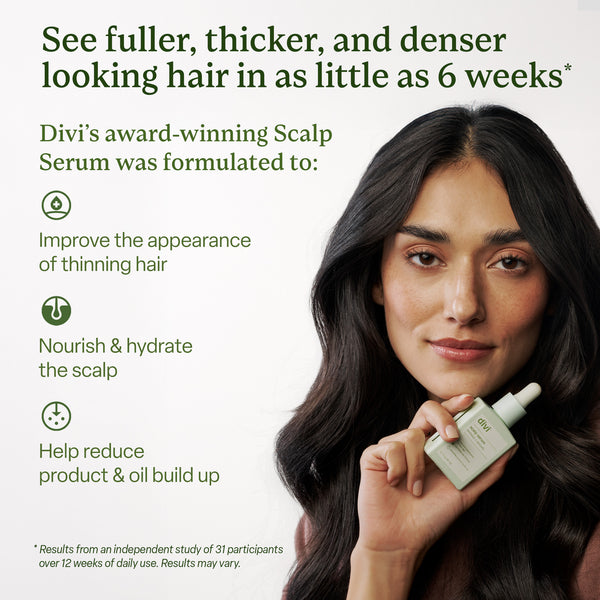


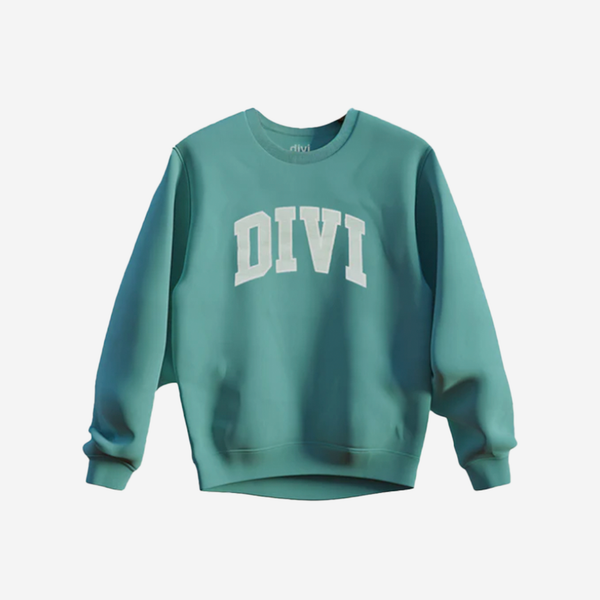
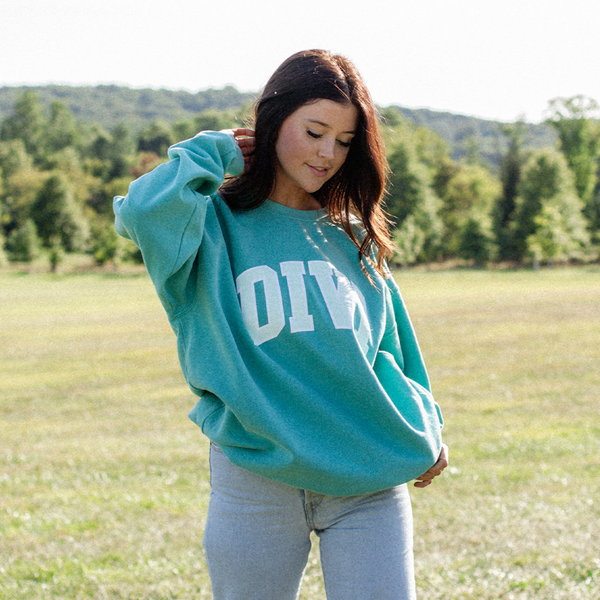




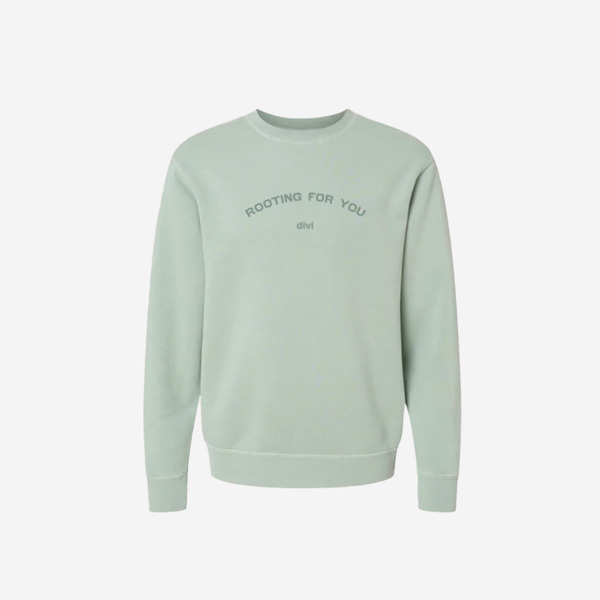


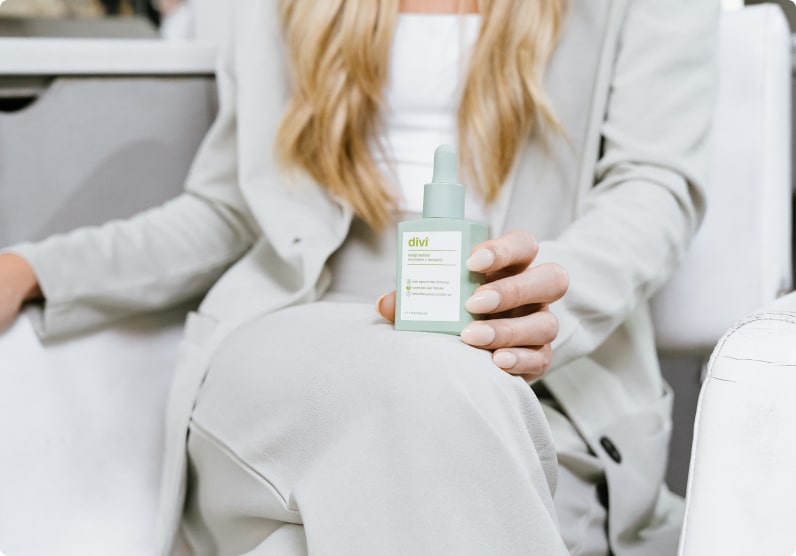






 30ml Scalp Serum
30ml Scalp Serum
 100ml Scalp Serum
100ml Scalp Serum
 Volumizing Shampoo
Volumizing Shampoo
 Hydrating Shampoo
Hydrating Shampoo
 Travel-Sized Volumizing Shampoo
Travel-Sized Volumizing Shampoo
 Travel-Sized Hydrating Shampoo
Travel-Sized Hydrating Shampoo
 Volumizing Conditioner
Volumizing Conditioner
 Hydrating Conditioner
Hydrating Conditioner
 Travel-Sized Volumizing Conditioner
Travel-Sized Volumizing Conditioner
 Travel-Sized Hydrating Conditioner
Travel-Sized Hydrating Conditioner
 3-in-1 Leave-In Conditioner
3-in-1 Leave-In Conditioner
 Best Sellers Bundle
Best Sellers Bundle
 Volumizing Starter Bundle
Volumizing Starter Bundle
 Hydrating Starter Bundle
Hydrating Starter Bundle
 The Healthy Hair Bundle
The Healthy Hair Bundle
 Hair Vitamins Trio
Hair Vitamins Trio
 Dry Shampoo
Dry Shampoo
 Hair Vitamins
Hair Vitamins
 Volumizing Shampoo & Conditioner
Volumizing Shampoo & Conditioner
 Travel-Sized Volume Duo
Travel-Sized Volume Duo
 Hydrating Shampoo & Conditioner
Hydrating Shampoo & Conditioner
 Travel-Sized Hydrating Duo
Travel-Sized Hydrating Duo
 Travel-Sized Dry Shampoo
Travel-Sized Dry Shampoo
 Travel-Sized Dry Shampoo Trio
Travel-Sized Dry Shampoo Trio
